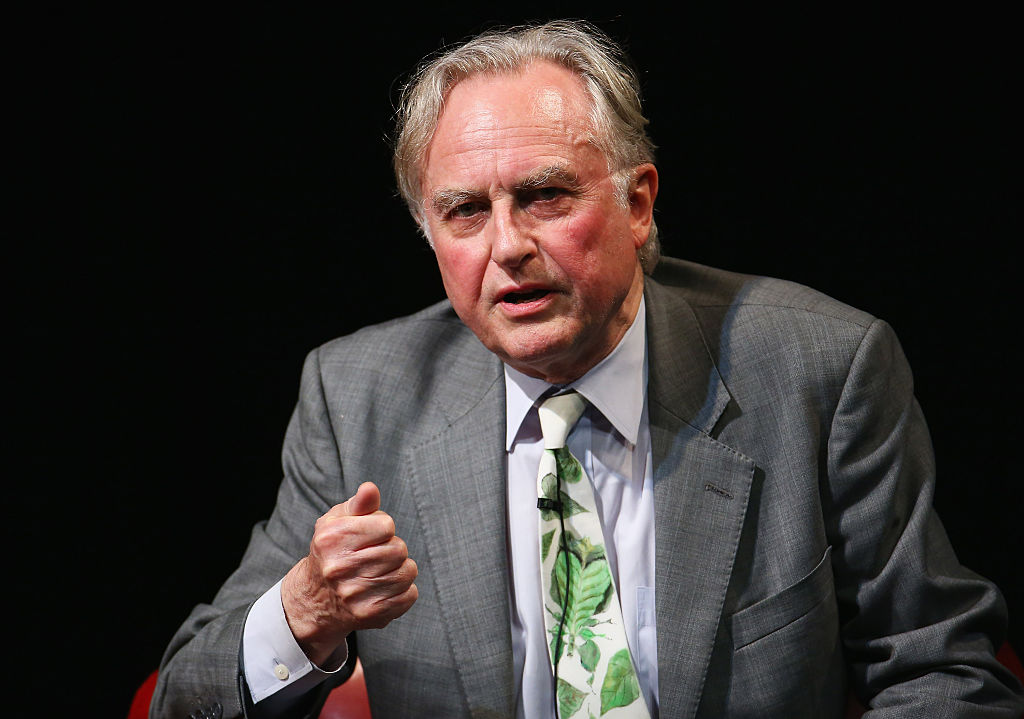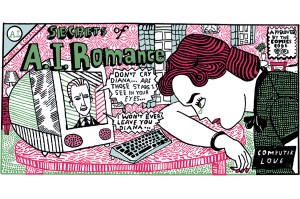Monday and Tuesday I gave over to two long conversations with Arvid Ågren, a Swedish biologist who wants to write a scientific biography of me. As the author of The Gene’s-Eye View of Evolution, he knows the subject inside out. Disconcertingly, he seems to have read every word I’ve ever written, and has an almost telepathic familiarity with my entire stock of humorous anecdotes. I wouldn’t put it past him to divine what my mother, who died at 102, would certainly have said: “But I don’t understand. Why would anyone want to write a biography of you?” He’s now going to start looking for a publisher, and she would no doubt want to wish him luck. I’m reminded of a nice publicity campaign for one of Douglas Adams’s books: a cardboard dummy of a little old lady in a hat saying: “Hello, I’m Douglas’s mum. Do buy his book. It’s awfully good.”
If anyone merits a good biography, it’s Ayaan Hirsi Ali. Her autobiography, Infidel, chronicles her extraordinary life, from childhood in the Islamic hell (for women) of Somalia, her escape to the Netherlands where she swiftly learned Dutch and became a Member of Parliament; then the all-too-credible threat from the jihadist murderer of her colleague Theo van Gogh, in a note pinned with a dagger to his corpse. After moving to America, this valiant, charming intellectual warrior became a stalwart of the atheist movement, on a par with Christopher Hitchens, Dan Dennett and Sam Harris. But now, in an astonishing volte-face, she has announced her conversion to Christianity. Imagine the Pope suddenly becoming an atheist — or, worse, an Orangeman — and you’ll get an idea of the fluttering in atheistic dovecotes caused by Ayaan’s tergiversation.
I asked her whether she really believes in fundamental Christian tenets such as the afterlife, Jesus’s resurrection and his parthenogenetic provenance. She doesn’t. I got the strong impression her Christianity is a matter of politics more than belief. Christianity is our best bulwark against Islam. Well, if rooting for benevolent Christianity in preference to malign Islam is all it takes to be a Christian, I’m a Christian too. There’s more to it than that, and I certainly haven’t done her justice here. Fortunately, a public meeting has been arranged in New York this May under the title “Dissident Dialogues,” where we can thrash it out. I’m looking forward to it. Not only because I adore Ayaan, but the brilliant Steven Pinker will be there. Also John McWhorter, whom I’ve long wanted to meet. And Kathleen Stock, the brave feminist philosopher disgracefully hounded out of Sussex University by a howling mob because she dared to use “woman” to mean what it actually does mean in English.
Wednesday to the New Theatre in Oxford to see Carmen. The company is Ukrainian, and the whole audience spontaneously stood for the Ukrainian national anthem, belted out by the cast and orchestra. And very stirring it is. I just wish the odious Putin could have heard it. Why do we English put up with our own national dirge: dreary melody and words to match? Compare the martial splendor of the “Marseillaise,” or “Land of My Fathers” roared in Welsh by a Cardiff rugby crowd. We could have Elgar’s “Pomp and Circumstance March No. 1,” preferably with less jingoistic words than “Land of Hope and Glory.” Or there’s Holst’s Jupiter theme (“I vow to thee my country”). Or Parry’s “Jerusalem,” even keeping Blake’s enigmatic words. King Charles is evidently a man of decided tastes. Maybe he’d get behind a change. He could then join in, for it must be pretty embarrassing singing an invocation to save yourself while extolling your own nobility.
;768:[300×250,336×280,320×100];0:[300×250,320×100,320×50]”]People keep asking me what I think about artificial intelligence. I was both disturbed and inspired by Mustafa Suleyman’s The Coming Wave. I asked ChatGPT about Helen Spurway (1915-78), wife of J.B.S. Haldane, and was startled to be informed that “after Haldane’s death she married Richard Dawkins.” When I told ChatGPT this wasn’t so, it (he, she, they, what are ChatGPT’s pronouns?) very decently climbed down. But then it said, equally falsely, that Helen Spurway was married to Aldous Huxley. Not impressive. However, when I asked it to write an essay on evolution in the style of Donald Trump, it produced a tour de force of vainglorious ignorance. Brilliant! Even better, I asked it to write me a computer program to generate a command to reverse the chess board at random intervals, and I remain bowled over with incredulous admiration. With a mixture of trepidation and exhilarated curiosity, I await our future.
This article was originally published in The Spectator’s March 2024 World edition.


























Leave a Reply